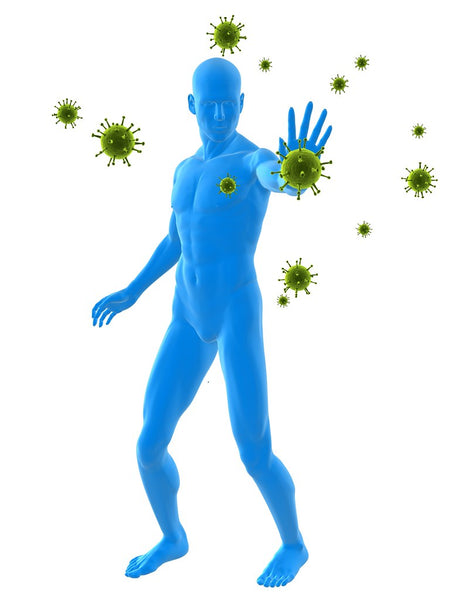CHRONIC INFLAMMATION. THE SECRET KILLER

EVERY ACTION CONTRIBUTES TO HEALTH OR PROMOTES DISEASE
Actions that promote disease create chronic inflammation, which is correlated with just about every disease known to man. In 2004, Time Magazine called inflammation “The Secret Killer” and each day we make choices about this so called “secret killer”. For example, every food we choose to eat, every pill we take, the time we decide to go to bed, the city we choose to live in, the job we choose to have… each one contributes to chronic inflammation or helps calm it down.
So, every choice we make about our health boils down to this: Pro-inflammatory or anti-inflammatory.
Working 100 hours a week at a stressful job with no sleep? Pro-inflammatory.
Eating a high-carb, low-fat diet filled with grains and sugar? Pro-inflammatory.
Drinking a few beers a night? Pro-inflammatory.
Taking Fish Oil? Anti-inflammatory.
Getting 8 hours of sleep? Anti-inflammatory.
Avoiding all grains (especially gluten)? Anti-inflammatory.
Years of making pro-inflammatory choices add up to chronic inflammation…
CHRONIC INFLAMMATION IS LIKE A FIRE RAGING INSIDE YOU
Inflammation is a normal immune response in your body. It’s usually our friend. Think of it like the first responder to the scene of the injury. Pain, swelling, redness, and warmth are all signs of inflammation arriving at the site and helping your body with the healing process.
There are two types of inflammation: acute and chronic (sometimes called systemic) inflammation.
Acute inflammation arises after a cut or scrape in the skin, an infected ingrown nail, a sprained ankle, acute bronchitis, a sore throat, tonsillitis or appendicitis. It is short-term and the effects subside after a few days.
Chronic inflammation is long-term and occurs in “wear and tear” conditions, including osteoarthritis, and autoimmune diseases, such as lupus and rheumatoid arthritis, allergies, asthma, inflammatory bowel disease and Crohn’s disease. Habitual or environmental factors, such as excess weight, poor diet, lack of exercise, stress, smoking, pollution, poor oral health and excessive alcohol consumption can also lead to chronic inflammation.
Chronic inflammation is when things go south.
Inflammation becomes chronic when it stops being an acute response and remains a constant low-level physiological response. Think of it like starting a small camp fire meant to keep you warm that doesn’t get put out and grows into an out of control forest fire, burning 100,000 acres.
Chronic inflammation is when your body no longer has the ability to turn off the inflammatory response and it starts damaging healthy tissue in your body. It could damage the intestinal lining in your gut and cause digestive problems, it could damage the arteries in your heart and cause heart disease, or it could damage your joints and cause rheumatoid arthritis.
At that point, too many pro-inflammatory choices have created a monster.
SIGNS YOU HAVE CHRONIC INFLAMMATION
The red flag for Chronic inflammation comes when a disease associated with it shows up, like heart disease, cancer, or autoimmune disease like MS, Ulcerative Colitis, Crohn’s Disease or Rheumatoid Arthritis. If you already have one of these conditions the pro-inflammatory choices have already had a profound impact in your life.
- Ongoing, irritating pain in the body (like the joints or muscles)
- Allergies or asthma (especially when they keep getting worse)
- High blood pressure or blood sugar problems
- Ulcers and Irritable Bowel Syndrome (constipation or diarrhea)
- Constant fatigue or lethargy
- Skin problems or red, bloodshot eyes
If you think you have signs or symptoms of chronic inflammation, you can get testing done to find out if you’re dealing with the “secret killer.”
WAYS TO TEST FOR CHRONIC INFLAMMATION
There isn’t a single silver bullet test for chronic inflammation. But there are a series of tests that, coupled with your history, can give you a picture of the levels of inflammation in your body.
Here are 6 common inflammatory markers you can ask your Doctor to test for:
- Elevated High Sensitivity C-Reactive Protein (HS-CRP)
- SED Rate
- High levels of Homocysteine
- Elevated Ferritin in the blood
- Elevated HDL
- Elevated Monocytes can be a secondary indicator of inflammation
- Elevated Blood Glucose is a leading indicator of inflammation
If the combination of these tests indicate you have signs of chronic inflammation, you need to focus on making anti-inflammatory choices from here on out.
This is life or death. Pro-inflammatory or anti-inflammatory. The real problem with chronic inflammation is that it’s not short-term gratification. It’s easy to pick the inflammatory choices and rationalize that it’s not a big deal. But the bottom line is: these pro-inflammatory choices add up over time until one day, chronic inflammation is the reason you have IBD, or heart disease, or RA, or even worse........
PERSISTENT ATTACKS
Chronic inflammation, sometimes called persistent, low-grade inflammation, happens when the body sends an inflammatory response to a perceived internal threat that does not require an inflammatory response. The white blood cells swarm, but have nothing to do and nowhere to go, and they sometimes eventually start attacking internal organs or other necessary tissues and cells.
Other times, the threat is real but we do not feel it or the inflammatory response, and the inflammation can persist forever. Persistent inflammation has been linked to a variety of ailments, including heart disease. It is often associated with environmental or habitual factors, such as pollution or poor diet, which has made it of interest to nutritionists.
When health experts speak of an “anti-inflammatory diet,” this kind of low-grade, chronic inflammation is what they typically hope to help..
RISKS OF CHRONIC INFLAMMATION
Scientists are still working to understand all the implications of chronic inflammation on the body’s health, but it is clear that it affects the body in myriad ways. Some of them may be:
Heart disease
Chronic inflammation has been linked to cardiovascular diseases. Cholesterol gets deposited in the lining of blood vessels and acts as an insult, because the cytokines that respond to these insults are in the bloodstream, they can lead to systemic inflammation. Inflamed blood vessels and growing fatty plaque can cause blockages and blood clots, which can cause heart attacks.
Diabetes
Cytokines can interfere with insulin signalling, resulting in increased insulin resistance and spiked blood sugar. The spikes trigger white blood cells to attack, and inflammation continues. In addition to increasing the risk for diabetes, insulin resistance can also increase the risk of weight gain.
Lung issues
Chronic inflammation in the lungs is a factor in many problems, such as asthma, chronic obstructive pulmonary disease (COPD), which includes chronic bronchitis and emphysema, and infections. When lungs are inflamed, fluid can accumulate, and the airways can narrow, making breathing difficult.
Bone health
Inflammation in the gut can decrease the absorption of nutrients that are important to bone health, like calcium and vitamin D.
Depression
Inflammation has been linked to symptoms of depression, including feeling down, loss of appetite and sleep problems.
Cancer
According to Cancer Research UK, immune cells attack fledgling tumours in an inflammatory response. These immune cells infiltrate the tumour, but instead of killing it, the tumour uses the nutrients and oxygen that are part of the inflammatory response to grow.
Anger disorders and aggressive behaviour
One study found that people with intermittent explosive disorder had higher levels of inflammatory markers, such as C-reactive proteins (CRP).
ANTI-INFLAMMATORY DIET AND FOODS
Anti- inflammatory diets have become popular in recent years. Hard evidence is lacking regarding the effectiveness of these diets in reducing inflammation, according to the Mayo Clinic, but the principles of an anti-inflammatory diet are healthy ones. The recommended foods are typical of a Mediterranean Diet and include eating more fish, fresh fruits and vegetables and healthy fats; eating moderate portions of nuts; eating very little red meat; and drinking moderate amounts red wine.
Anti-inflammatory food components, such as omega-3, protect the body against the possible damage caused by inflammation. On a cellular level, omega-3 fatty acids inhibit an enzyme that produces prostaglandins, which trigger inflammation. It’s similar to how aspirin works.
Nutritionists also recommend incorporating more of the following foods into your diet:
- Cold-water fish: These are among the best sources of omega-3 fatty acids
- Avocados: Avocados have great anti-inflammatory properties. They contain phytosterols, carotenoid antioxidants, omega 3 fatty acids and polyhydroxolated fatty alcohols — compounds that can help reduce inflammation.
- Broccoli and other cruciferous vegetables: Broccoli, Brussels sprout, kale and cauliflower and other green leafy veggies contain sulforaphane, which is associated with blocking enzymes that are linked to joint deterioration and, consequently, chronic inflammation.
- Watermelon: Watermelon contains lycopene, a cellular inhibitor for various inflammatory processes. It also works as an antioxidant to neutralize free radicals. Additionally, watermelon contains choline, which helps keep chronic inflammation down
- Walnuts and other nuts: Another great source of omega-3 fatty acids.
- Onions: Their anti-inflammatory properties have made them a popular home remedy for asthma for centuries. Onions are a good source of quercetin, which inhibits histamines known to cause inflammation.
- Berries: These contain polyphenol compounds, particularly anthocyanins, which produce dark red pigments, moderate inflammation.
- Whole grains: Whole grains like brown rice, quinoa and bulgur wheat have been associated with decreased CRP levels. The fiber in whole grains can help mediate inflammatory processes by helping with weight loss and feeding beneficial gut bacteria associated with lower levels of inflammation, according to the Arthritis Foundation.
- Certain spices: Ginger, rosemary, turmeric, oregano, cayenne, cloves and nutmeg as possessing anti-inflammatory compounds can inhibit the biochemical process of inflammation.
- Targeted Supplements: The body requires a specific ratio of omega-3 and omega-6 fatty acids to function optimally. Consumption of meat from land-based animals fed on grains high in omega-6 fatty acids, together with increased use of vegetable oils such as corn, sunflower and safflower, has led to a rise in intake of omega-6 fatty acids in the West, while omega-3 intake has declined. The ideal ratio of omega-6 to omega-3 is in the region of 2:1, yet the average diet is now quite significantly out of balance at an average of approximately 25:1 and is correlated with a wide range of inflammatory health conditions. The two-step RESTORE & COMPLETE therapeutic protocol is aimed at managing inflammation within the body by manipulating the ratio of the key omega-6 and omega 3 fatty acids AA and EPA ‚ a scientifically recognized biomarker of inflammation within the body.
Remember to ask yourself is this pro-inflammatory or anti-inflammatory? The real problem with chronic inflammation is that it’s not short-term gratification. It’s easy to pick the inflammatory choices and rationalize that it’s not a big deal. Like that takeaway pizza after you stayed late working, when what you should be doing for your long term health is having something cooked at home and getting an extra hours sleep. Plan ahead, it’s much easier to make better choices for your health when you are organised. But the bottom line is: these pro-inflammatory choices add up over time

